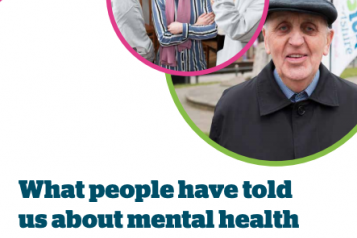9 million people in the UK are lonely right now. Are you one of them?

Loneliness affects people of all ages and backgrounds. It can cause us real emotional pain and can impact on our physical and mental health. It also has an economic cost; as well as the cost to the NHS and social care services, there is also the missed contributions to society when people are unable to connect with others.
In short loneliness is a big issue.
Covid hasn’t helped the situation. Research by the Campaign to end Loneliness showed the people who were already lonely before the pandemic, became much more lonely. As we start to try and move beyond Covid, research also shows that people who were already at risk of loneliness – such as those who were poorer, in worse health or from ethnic minorities or LGBTQ+ communities – became at greater risk of loneliness during the pandemic.
Feeling lonely is personal, and what you experience when you feel lonely may be different for other people. Loneliness does not always mean being alone, you may be surrounded by loved ones but still experience feeling lonely, especially if you don’t feel understood or listened to.
Loneliness is not a mental health problem, but it is closely linked to ill mental health. For example, if you suffer from social anxiety you may struggle to make new connections with people which can make you feel lonely.
What causes loneliness?
Loneliness has lots of different causes and will vary from person to person. For some, a big life event such as a bereavement, starting university, changing jobs or moving to a new area can cause loneliness.
Some people find they feel lonely at certain times of the year such as Christmas or their birthday.
You may be more vulnerable to experiencing loneliness if you:
Have no close friends or are estranged from your family
Experience discrimination because of your sexual orientation, gender, race, disability or long-term health problem.
Belong to a minority group in an area without others from a similar background
Are a single parent or a carer for someone
Are excluded from events due to mobility issues or a lack of finances
Have experienced abuse
How can I manage my loneliness?
Try talking about your feelings to someone you trust such as friends or family. You could also contact the Samaritans if you need someone to talk to. You can call them on 116 123 or email jo@samaritans.org. To find out more, visit the Samaritans website here.
What about joining a club or group that interests you? Groups can provide you with an opportunity to meet new people with similar interests to you. You can find local groups on Facebook, or you could try joining your local gym. If you are feeling particularly anxious, an online group can be a good place to start.
We work with some great organisations who offer peer support groups for ill mental health. You can find them here.
Spend time with animals. Some people find that spending time with animals can help to alleviate feelings of loneliness. If you don’t have a pet, you could visit a local farm or petting zoo, or ask to borrow a friends.
Be careful with time spent on social media. It can be easy to compare ourselves to others online, however it is important to remember that what people share on their profiles probably isn’t a true reflection of their life. If you’re worried about your online mental health, visit the Mind website here.


